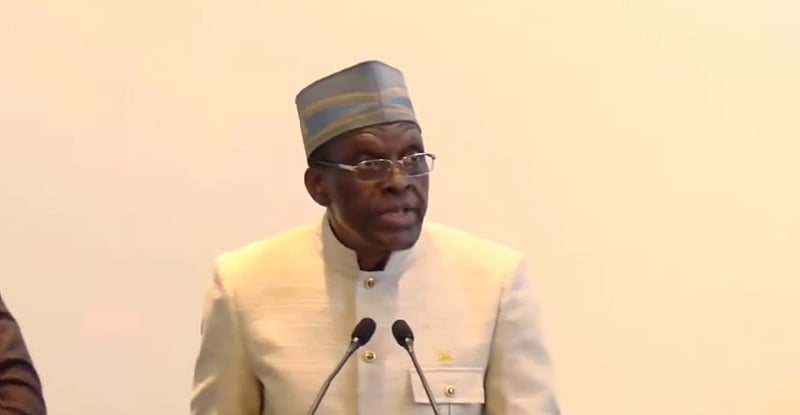Speaker of Parliament Alban Bagbin has openly expressed his uncertainty about what the upcoming session of Parliament, set for November 7, will entail. His remarks come after the National Democratic Congress (NDC) Caucus, represented by Minority Chief Whip Governs Kwame Agbodza, announced intentions to occupy the Majority seats on the Speaker’s right upon Parliament’s reconvening. This declaration is poised to escalate existing tensions in the House, reminiscent of the atmosphere on October 22, when a similar incident of parliamentary discord compelled the Speaker to adjourn proceedings indefinitely. Bagbin’s comments highlight the unpredictable nature of Parliamentary dynamics in the current climate.
In a media engagement on November 6, Bagbin conveyed the unpredictability of Parliamentary sessions, albeit with a hint of humor, stating, “I don’t know what will happen when the House reconvenes.” His acknowledgment of the tension-filled environment reflects not only his understanding of the political landscape but also the vital role media plays in shaping the dialogues within Parliament. He emphasized the necessity of disagreement as part of the legislative process, urging a respectful approach to differing views while recognizing that unpredictable elements could influence the session’s outcome. The casual atmosphere in which Bagbin made these statements suggests a level of openness in communication, despite the underlying seriousness of the situation.
On the day of the previous adjournment, Bagbin recounted having faced three options after a walkout by some members of the governing party, leaving only the NDC representatives present. This scenario underscored the fractured nature of Parliamentary relations, revealing the challenges faced by leadership in maintaining order and facilitating productive discourse amidst dissenting voices. By outlining his choices during that critical moment, he illustrated the difficult decisions that leaders must navigate in the face of a contentious political environment. Bagbin’s reflections serve as a reminder of the complexities involved in Parliamentary proceedings and the various factors that can trigger disruptions.
The tensions between the majority and minority parties continue to shape the legislative landscape, and the upcoming session promises to be crucial in determining how these dynamics unfold. The decision by the NDC to assertively occupy spaces traditionally held by the Majority signals an escalating conflict over control and influence within the House. This maneuvering is indicative of deeper political rivalries, wherein each party seeks to fortify its stance and challenge the other’s authority. As Parliament shapes laws and policies that affect the lives of citizens, the underlying discord among party members raises questions about the effectiveness and unity of governance.
Furthermore, the implications of such conflicts extend beyond the walls of Parliament, influencing public perception and trust in democratic institutions. The Speaker’s light-hearted approach during media interactions may serve as a coping mechanism for the politically charged atmosphere, but it also hints at a potential need for reconciliation and dialogue among members. If factions continue to exemplify hostility, it could hinder legislative progress, further polarizing an already fragmented political environment. Bagbin’s role as Speaker will be pivotal in navigating these complexities, facilitating dialogue, and promoting a more collaborative spirit among representatives.
As the Parliament reconvenes, all eyes will be on how leadership addresses the ongoing tensions and whether any constructive steps toward dialogue can be achieved. The ability of Bagbin and his colleagues to manage the challenges posed by factionalism will determine not just the legislative agenda, but also the broader implications for democratic practice in the country. Engaging with divergent viewpoints while fostering a spirit of compromise will be vital to restoring confidence in the Parliament as a functioning and responsive institution, demonstrating to citizens that their voices can be heard and valued within the political spectrum.


